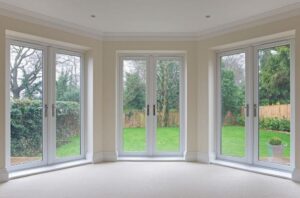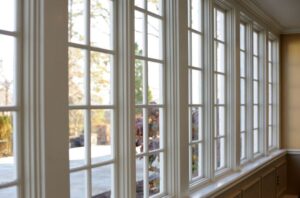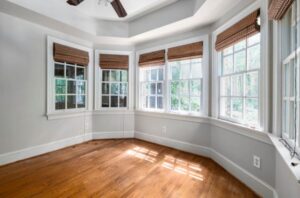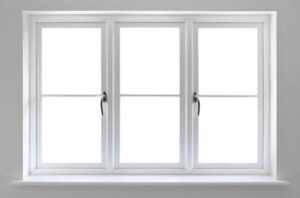When deciding between Quaker Windows vs Jeld Wen for your home, it’s essential to understand both brands thoroughly.
Quaker Windows, established in 1949 in St. Louis, Missouri, has a rich history of evolving product ranges. On the other hand, Jeld Wen, founded in 1960 in Oregon and now headquartered in North Carolina, has grown into a global entity.
This comparison will delve into their histories, product ranges, and more, highlighting the crucial aspects of each brand. Choosing the right windows and doors is more than a mere aesthetic decision; it influences your home’s energy efficiency, security, and overall design.
By examining these two reputable brands, we aim to provide a comprehensive guide that assists in making an informed decision, addressing the concerns homeowners often face when selecting the best options for their homes.
Quick Comparison Table: Quaker Windows vs Jeld Wen
| Feature | Quaker Windows | Jeld-Wen |
|---|---|---|
| Foundation | Founded in 1949, St. Louis, Missouri | Established in 1960, Oregon (now in North Carolina) |
| Product Range | Vinyl and aluminum-clad wood windows, patio doors | Wide range of replacement and new construction windows, various styles |
| Materials | High-performance vinyl, aluminum, wood | Versatile materials for style and budget |
| Window/Door Options | 8 window types, 5 door types | Over 50 window types, 3 door types |
| Style and Design | Contemporary designs, various series | Farmhouse, modern, traditional, coastal styles |
| Technology | OptiCore technology, ENERGY STAR® efficient | FiniShield™, ImpactGard®, energy-efficient |
| Frame Materials | Aluminum, vinyl, wood | Aluminum, vinyl, wood |
| Certifications | NFRC certified, energy efficient | EnergyStar labeled, FSC-certified |
| Customization | Custom colors, hardware, glass, grids | Wide range of styles, large retailer availability |
| Price | Generally lower priced | Slightly higher, more customization options |
| Warranty | Lifetime limited, up to 20 years for glass | 10 years (aluminum), 20 years (wood), lifetime (vinyl) |
| Brand Evolution | Innovative products like OptiCore® | Global market reach, diverse style options |
| Customer Reviews | Average 4.1/5 stars | Mixed, average 4.3/5 stars |
Key Comparison: Quaker Windows and Jeld Wen
When evaluating Quaker Windows vs Jeld Wen, various factors come into play, from their foundational history to the latest innovations.
This deep dive into both brands will reveal distinct characteristics, helping homeowners make an informed choice.
Foundation and History: Origins and Growth
Quaker Windows, with its roots in St. Louis, Missouri since 1949, has grown significantly, evolving its product range to meet changing market demands.
In contrast, Jeld Wen’s journey began in 1960 in Oregon. Now headquartered in Charlotte, North Carolina, Jeld Wen has established itself as a global brand, emphasizing its international presence.
Product Range and Window/Door Options
The range of products offered by these two companies highlights their market adaptability.
Quaker Windows provides a selection of vinyl and aluminum-clad wood windows and patio doors, focusing on a mix of traditional and modern designs. Jeld Wen, however, offers a broader spectrum of replacement and new construction windows in various styles and materials, catering to a wider range of customer preferences.
Materials Used and Frame Material Comparison
Both brands use high-quality materials but with different focal points.
Quaker Windows utilizes premium vinyl, aluminum, and wood, ensuring durability and performance. Jeld Wen, on the other hand, offers a range of materials that focus on versatility in style and budget, meeting diverse customer needs.
Style and Design: Aesthetic Appeal and Customization
Style and design are where these two brands distinctly shine. Quaker Windows offers various colors and trims, including custom paint finishes. Their product lines like Manchester, VuPoint, Brighton, and TimberVu are synonymous with contemporary design and narrow frame profiles, suitable for various architectural styles.
Jeld Wen provides a diversity of styles like farmhouse, modern, and traditional, with an extensive range of doors including all panels, glass panels, and bifold options, balancing performance with aesthetics.
Technology Innovations: OptiCore vs FiniShield™
In technology, both brands have made significant strides. Quaker Windows features the patented OptiCore technology and Environmental Stewardship Green Technology, ensuring products meet or exceed ENERGY STAR® requirements.
Jeld Wen counters with its FiniShield™ color technology and ImpactGard® for enhanced durability and color protection, focusing on energy-efficient options that do not compromise on performance or durability.
Certifications and Environmental Responsibility
Regarding certifications and environmental responsibility, Quaker Windows is certified by NFRC and other associations, indicating reliable energy performance and quality standards.
Jeld Wen steps up with products that are EnergyStar labeled and FSC-certified, underlining its commitment to energy efficiency and environmental responsibility.
Price and Warranty: Balancing Cost and Quality
Price and warranty are crucial for long-term investment. Quaker Windows are generally priced lower than Jeld Wen, offering lifetime limited warranties, including up to 20 years for glass.
Jeld Wen, although slightly higher in price, offers a broader range of choices and customization options, with a warranty scheme that includes 10 years for aluminum, 20 years for wood, and a lifetime warranty for vinyl products.
Brand Evolution and Innovations
Both brands have evolved over time, introducing new products and technologies. Quaker Windows is known for its innovative approaches like the OptiCore® technology.
Jeld Wen, meanwhile, has expanded its market reach globally, offering accessible styles that cater to a wide range of customer preferences.
In summary, this comparison reveals that while Quaker Windows emphasizes traditional design and value, Jeld Wen focuses on a broader range of styles and customization options.
Both brands offer unique strengths, making them suitable for different homeowner needs and preferences.
Which is Better? Evaluating Quaker Windows vs Jeld Wen
Choosing between Quaker Windows vs Jeld Wen involves weighing various factors from design to technology, aiming to determine which brand aligns better with specific homeowner needs.
Comparing Styles and Design for Modern Homes
When it comes to style and design, both brands offer distinct choices.
Quaker Windows brings contemporary designs with its series like Manchester and Brighton, known for their narrow frame profiles and custom paint finishes. Jeld Wen, however, spans a broader style spectrum, offering designs from farmhouse to modern.
The choice here depends on whether the preference is for a specialized, contemporary look (Quaker) or diverse, stylistic options (Jeld Wen).
Analyzing Technology: Energy Efficiency and Durability
Technology, especially regarding energy efficiency and durability, is a critical factor.
Quaker Windows features OptiCore technology and meets ENERGY STAR® requirements, focusing on advanced glass coatings for energy efficiency. Jeld Wen’s technology, including FiniShield™ and ImpactGard®, emphasizes durability and color protection, alongside energy-efficient options.
Homeowners looking for advanced energy-saving features may lean towards Quaker, while those prioritizing durability might find Jeld Wen more appealing.
Customization Options: Flexibility in Design and Use
Customization is where Jeld Wen stands out, offering a wide array of window styles and designs, available through large retailers. Quaker Windows, though offering customization in colors, hardware, glass, and grids, has a more limited range compared to Jeld Wen.
For homeowners seeking extensive customization options, Jeld Wen is the go-to.
Customer Reviews and Brand Reputation
Customer feedback is a valuable insight into real-world performance. Quaker Windows boasts an average rating of 4.1 out of 5 stars, praised for its professional team and quick service. Jeld Wen, with an average rating of about 4.3 out of 5 stars, receives mixed reviews, with some concerns over insect screens and warranty issues.
This aspect puts Quaker slightly ahead in terms of customer satisfaction.
Warranty Comparison: Understanding Long-term Value
Warranty is a significant aspect of long-term value. Quaker offers lifetime limited warranties, including up to 20 years for glass, while Jeld Wen provides a more varied warranty scheme depending on the material.
This makes Quaker more appealing for those seeking more comprehensive long-term coverage.
Pricing: Assessing Affordability and Investment
In terms of pricing, Quaker Windows are generally more affordable than Jeld Wen, which is attributed to its wider range of choices and customization options.
Budget-conscious homeowners might lean towards Quaker for its balance of quality and cost.
Final Verdict: Matching Brand Strengths to User Needs
The final choice between Quaker Windows and Jeld Wen hinges on individual preferences and requirements.
Quaker offers specialized, contemporary designs with a strong focus on energy efficiency, making it ideal for homeowners seeking these specific attributes.
Jeld Wen, with its broad range of styles, extensive customization options, and focus on durability, caters to those who prioritize versatility and long-term resilience in their window and door selections.
The decision ultimately rests on which brand’s strengths align best with the homeowner’s unique needs and aesthetic preferences.
Conclusion
In summarizing the comparison between Quaker Windows vs Jeld Wen, it’s clear that each brand has its unique strengths and offerings.
Quaker Windows excels in energy efficiency and contemporary design, while Jeld Wen offers a broader range of styles and customization options. The choice ultimately depends on individual needs and preferences.
As technology in window and door manufacturing continues to evolve, staying informed about the latest trends and innovations is crucial. Homeowners should continually seek up-to-date information to make informed decisions that best suit their homes and lifestyles.
This comparison aims to provide a starting point for those on the path to choosing the right windows and doors for their homes.





